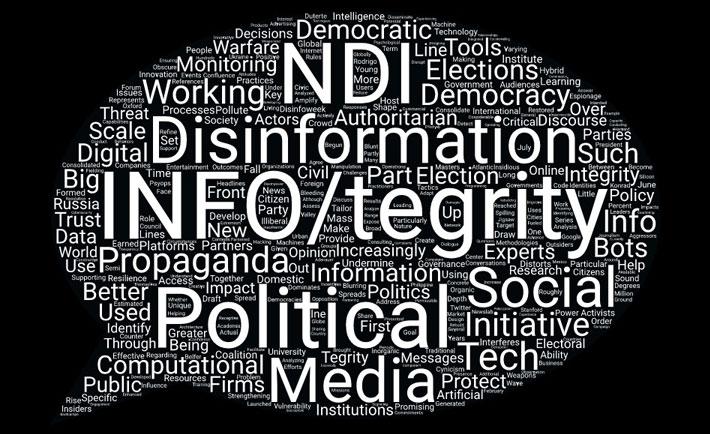Recent headlines on the role of Russian disinformation in the 2016 U.S. presidential election have ignited important policy discussions on the impact of information warfare on democratic systems. While disinformation has been used for decades to turn the tides of policy in the favor of its perpetrators, the scale and nature of modern disinformation campaigns pose a qualitatively different challenge to the future of democracy. The ubiquity of social media, the ability to individually target voters through massive amounts of personal data, the use of sophisticated behavioral modelling and the incorporation of artificial intelligence into disinformation operations require a far more urgent and serious response from the policy community.
In countries and communities around the world, defenders of democracy are working to understand and respond to the ways that technology is impacting political and electoral processes. With every election or political event, democracy’s defenders are capturing new lessons on how democracy can weather evolving threats and even thrive in the digital age. Despite this growing body of projects and the commitment of local actors in countries around the world, responses to evolving digital challenges to date often lack coordination. But both globally and regionally, key democracy stakeholders haven’t had a proper channel for information-sharing, research coordination, and advancing shared priorities at the intersection of tech and democracy. So we’re building one, as a community.
All for One: Building Information Integrity into Elections
Elections are one of the most critical elements of any democratic system, but also one of the moments where democracy is most vulnerable. Politicians compete to take control of the executive, become representatives in legislatures and sometimes appoint judges across branches of government, and the information environment plays a crucial role in the debates that decide who will represent the will of the people. This environment is increasingly mediated by the internet, through social media platforms, messaging apps, email and a wealth of new tools and applications that come online every day. Unfortunately, this new online environment is also increasingly polluted by disinformation.
In Fight Against Online Disinformation, A Variety of Tools Are Needed
In technology, you often hear geeks referencing the classic “garbage in, garbage out” problem. When the inputs to a system are bad, however beautifully crafted the program itself may be, the outputs will necessarily be bad as well. Our democratic systems are dependent on the input of citizens, but when disinformation is also an input the outputs of our processes can be deeply flawed. Disinformation and the systemic distrust it fuels has been a dangerous ingredient in the global surge of nativism, intolerance, and polarization undermining democracy and human rights around the world. Understanding and stopping disinformation is a tremendous challenge; any single solution will be incomplete so many will be required. In 2018, the fastest, most virulent and dangerous disinformation is spreading on digital platforms, and as such technical understanding is critical to wrap our heads around the problem.
What makes some people more susceptible to disinformation?
Disinformation is one of the thorniest problems facing citizens online around the world today. Recent reports have highlighted that the problem is not only present, but indeed it is becoming more grave in the absence of proper solutions to combat it. While considerable thought and research have been dedicated to technological solutions, efforts at understanding the human mechanics of disinformation are still nascent. Exploring what demographics are most vulnerable or most likely to be targeted, why they are receptive to disinformation, and the mechanics of how disinformation spreads within their networks online and offline is key to finding effective solutions in the long term.
INFO/tegrity and NDI’s Efforts to Combat Disinformation
Long before the issue of Russian disinformation became the subject of headlines in the U.S., NDI worked with partners to understand and counter efforts to manipulate information. NDI has continued to expand its in-house capacity and its external partnerships in this area through an initiative we've called INFO/tegrity, which focuses on efforts to detect, analyze, and combat disinformation online.
Disinformation: A New Challenge to Democracy or More of the Same?
Recent headlines on the role of Russian disinformation in the 2016 U.S. presidential election have ignited important policy discussions on the impact of information warfare on democratic systems. While disinformation is not new and has been used for years to turn the tides of policy in the favor of its perpetrators, developments with respect to social media, big data, and artificial intelligence mean that disinformation now poses a very different type of threat to democracy.

_1_0.jpg)




